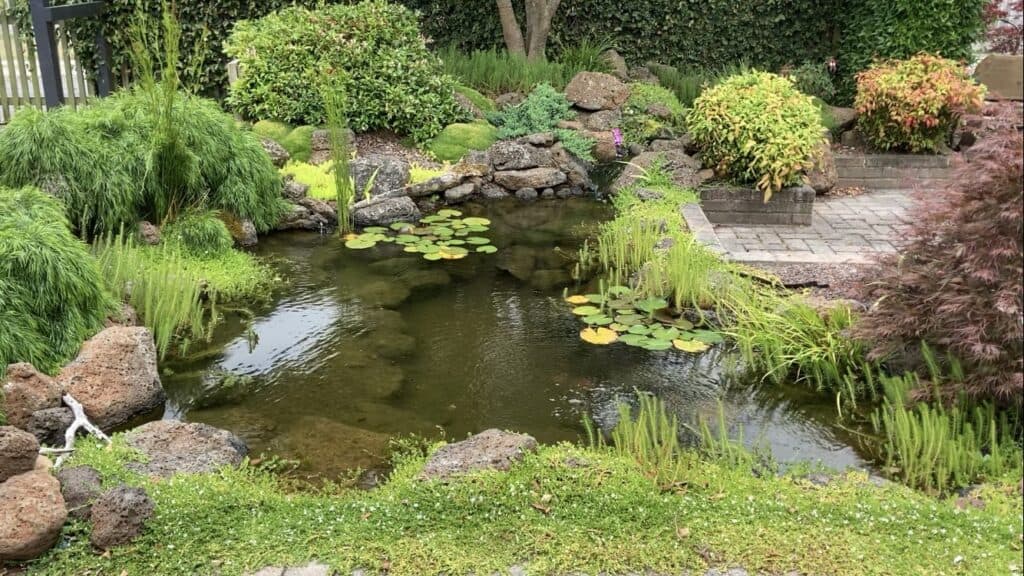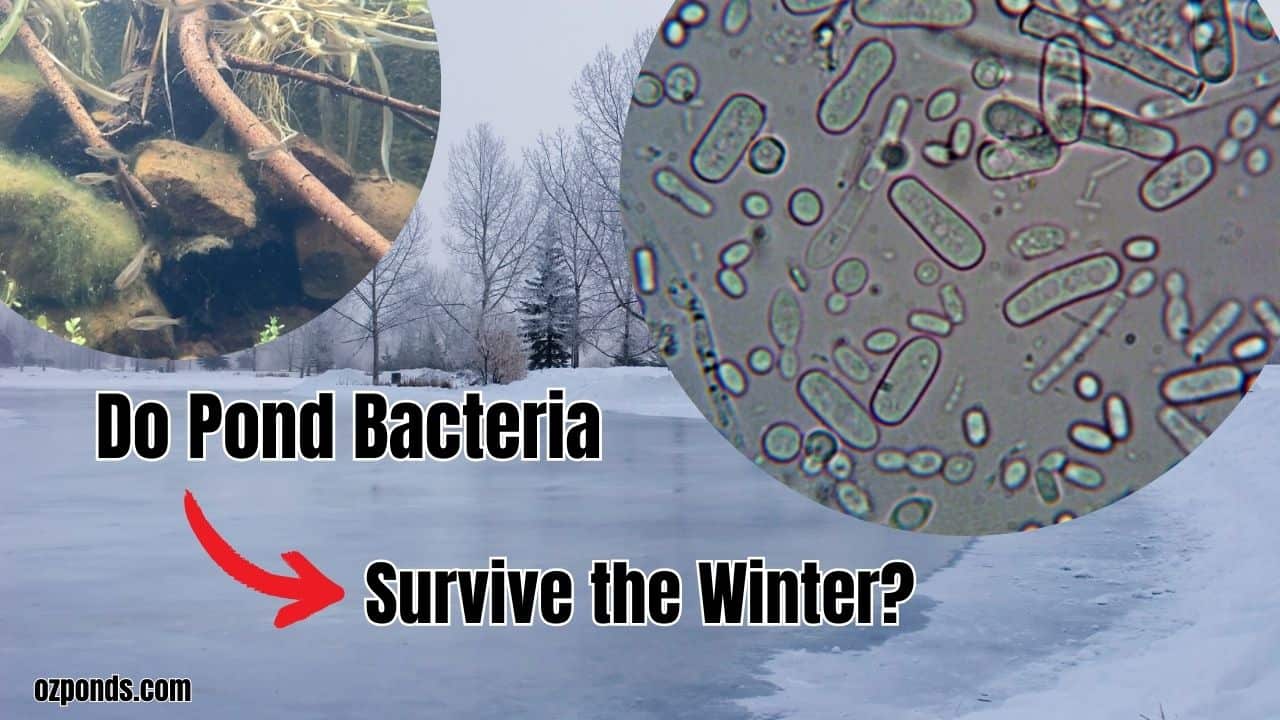The bacteria living inside our ponds, particularly in our filters, play an essential role in keeping the water safe and clean for fish and other pond inhabitants.
These bacteria break down waste products, preventing algae overgrowth and maintaining a balanced ecosystem. Without them, ponds could become unhealthy environments, potentially harmful to fish and other critters.
If you need to learn more about this process you can read my article on beneficial bacteria inside a pond.
What Happens to Pond Bacteria in Winter?
As temperatures drop, the biological activity within ponds slows down, and the bacteria responsible for breaking down waste and processing nutrients are no exception. While they don’t disappear, their activity diminishes significantly. The same goes for microorganisms that help with organic material decomposition.
During the colder months, it’s essential to avoid overloading the bacteria with too much waste. Fish, for instance, should be fed less as their metabolism slows down in response to cooler temperatures, producing less waste.
During warmer seasons, fish metabolism increases, leading to more waste, which is processed effectively by active bacteria. But in winter, when bacteria are less efficient, excessive waste can accumulate, impacting water quality.
I made a video if you prefer to watch, rather than read.
Different Climates, Different Responses
The efficiency of pond bacteria in winter will vary based on your climate and pond setup.
For example, tropical climates can support more aquatic life year-round due to warmer waters, while temperate regions tend to have smaller fish populations and slower biological processes during colder months.
If you live in a colder climate, preparing your pond for winter is key to maintaining healthy water quality.
Choosing the Right Fish for Winter Survival
Selecting fish that naturally adapt to colder climates is crucial. Popular pond fish like common goldfish and koi can slow their metabolism to survive the winter.
First-time pond owners often make the mistake of feeding their fish too much in cold weather, which can cause issues.
Fish struggle to digest food in cooler temperatures, and any uneaten food can sink to the bottom or get trapped in the filter.
With bacteria working at reduced capacity, this leftover food can cause water quality issues, including rising ammonia levels.
Keeping Filters Running in Winter
If you can, keep your pond filter running throughout winter. Bacteria need oxygen to function, and water movement helps maintain oxygen levels.
If you experience severe winters and must shut down the filter, ensure that your plumbing is properly drained to prevent cracking. The bacteria will survive in the pond, and once temperatures rise in spring, they will recolonize the filter system.
Preventing Ice Formation and Gas Buildup
In regions with harsh winters, keeping a hole in the ice is essential for gas exchange. Even with bacteria working at reduced capacity, gases can accumulate under the ice, creating harmful conditions for fish.
If your pond experiences occasional icing, you might not need to worry as much, but for prolonged periods of ice cover, consider using a pump, aerator, or pond de-icer (Amazon link) to maintain a hole in the ice.
Just be sure not to disturb the warmest water at the bottom, where fish will gather during winter.
Limiting Waste in the Pond
In the lead-up to winter, it’s helpful to limit the amount of debris, such as leaves, falling into the pond.
Excess organic material can overwhelm the bacteria and microorganisms during the winter months. That said, a small amount of leaf material can provide food for microorganisms, and fish may feed on these throughout winter and into spring.
Encouraging a Healthy Pond Ecosystem
Ultimately, the goal is to maintain a diverse population of bacteria and microorganisms that can survive winter and thrive in the spring. Nature has its way of balancing ecosystems, and the more we allow that natural balance to unfold, the healthier the pond will be for its inhabitants.
Remember, every pond is different, and so are the bacteria that live in your specific environment. By focusing on basic maintenance and allowing nature to do its job, your pond will flourish through the seasons.

Join my free email list
If you would like to join my free email list click the button below.
I promise I won’t spam you, I’ll only send information I think can help you save money building and maintaining a pond.

